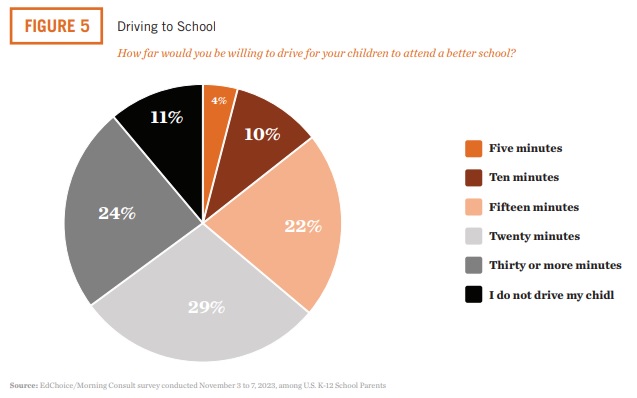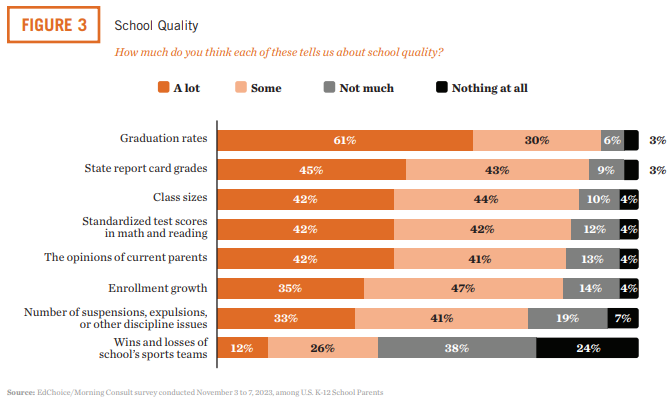A new report by EdChoice uses parent surveys to identify what parents want from their schools.
The whole thing is worth reading, but I wanted to highlight two key points that jibe with other studies and underscore important challenges for the education choice movement.
Distance matters

Parents are willing to travel to transport their child to a quality school. But there are limits.
The most common response to EdChoice's surveys was that parents were willing to travel up to 20 minutes to get their child to a school they perceived as high-quality, though some indicated they'd be willing to travel longer.
This underscores a common-sense point that other studies have shown for years: there are practical limits to the school options that families are able to access.
Measures to reduce geographic constraints on families' options, like eliminating residential school assignment, are worth doing. These efforts need to be paired with efforts to provide more flexible forms of school transformation and increase the number of quality options every family can find close to home.
Objective data matters

When school systems shift top-down regulatory accountability to accountability driven by family choices, families still want objective information on which schools are effective.
Studies have reached different conclusions about just how much families value test scores, graduation rates, and other quantitative measures of school effectiveness, but the EdChoice results show these indicators matter to families, and that broad point jibes with earlier studies of public-school choice in New Orleans and Washington D.C..
Other research has found that giving parents access to new information, like student growth data, can influence the choices families ultimately make.
This creates a technical challenge for policymakers: How can they ensure families have actionable, comparable data on school effectiveness without imposing mandates that schools take specific assessments that might not align with the unique educational philosophies of diverse learning environments?
The bottom line
If we want to help all families have access to learning options that meet their needs, we're going to need to devise new methods to give families access to objective information about school performance, and to help them overcome logistical barriers to accessing schools of their choice.